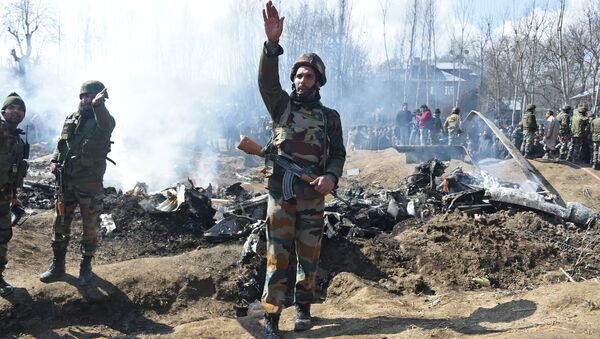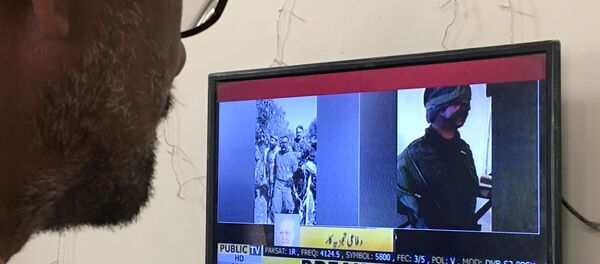New Delhi (Sputnik) — Amid reports of active conflict between Pakistan and India where both sides have claimed one-up-manship vis-à-vis the other, Sputnik spoke to a former Indian diplomat, Pundi Srinivasan Raghavan, who is also the former Indian ambassador to Russia on his take on the standoff.
Sputnik: What were your first thoughts about the current India-Pakistan standoff?
Pundi Srinivasan Raghavan: I think we all need to look at the backdrop. The background is very simple. It got started on the 14th of February, as you are well aware when a very horrendous terrorist attack took place in Pulwama, Kashmir. It has been pretty much criticized and condemned around the world. What happened yesterday was essentially what the foreign secretary had said namely that our intelligence had gathered that such attacks were being planned for other parts of the country as well. India's air force carried out what they called the pre-emptive non-military strike.
Sputnik: What do you think would be the impact of this standoff on regional stability and security?
Pundi Srinivasan Raghavan: Now what is regional stability and security? Our security was threatened and we took action in order to prevent more of such attacks. We have to think about what actions are required in order to protect our security.
You have people who are outside the country far away from the conflict zone who call upon countries to exercise restraint. When you ask both sides to exercise restraint, as many people have done, it is basically equating the victim with the attacker. You don't ask the victim to exercise restraint.
We should not be really talking about what will be the impact on regional security and regional stability. The whole point is what a country should do to defend itself from terrorist attacks on its soil. This is a matter of fundamental security for the people of the country.
READ MORE: READ MORE: Moscow Urges India, Pakistan to Show Restraint Amid Escalated Tensions
Pundi Srinivasan Raghavan: First of all, it was not an Indian show of strength. As what our Foreign Ministry has said, it was a pre-emptive non-military strike to target those who were preparing to carry out terrorist attacks in other parts of the country. It would be wrong to consider this as an act of revenge. It's basically an act of self-defense.
Very frankly, I'm not in government and I'm not giving you an official government position right now. I am in an advisory role for the central government. If there are more threats of attacks perceived, then I am absolutely certain that we would take action to prevent those attacks from materializing.
Pundi Srinivasan Raghavan: For now I cannot say where the conflict is heading because it also depends on what action Pakistan would take. I cannot predict what actions they would be taking. But all I want to tell you is that you cannot equate the victim with the attacker.
If Pakistan takes any action which will further affect us, then, of course, we will respond to it.
Sputnik: Considering the usual behavior pattern of Pakistan and with regards to how India conducts its business, what are your gut feelings?
Pundi Srinivasan Raghavan: I cannot give you a gut feeling on which direction the conflict is going to go. I can only tell you that India will do everything that needs to be done to prevent its territory from being attacked by terrorists.
The views and opinions expressed in this article are those of the speaker and do not necessarily reflect the position of Sputnik.






